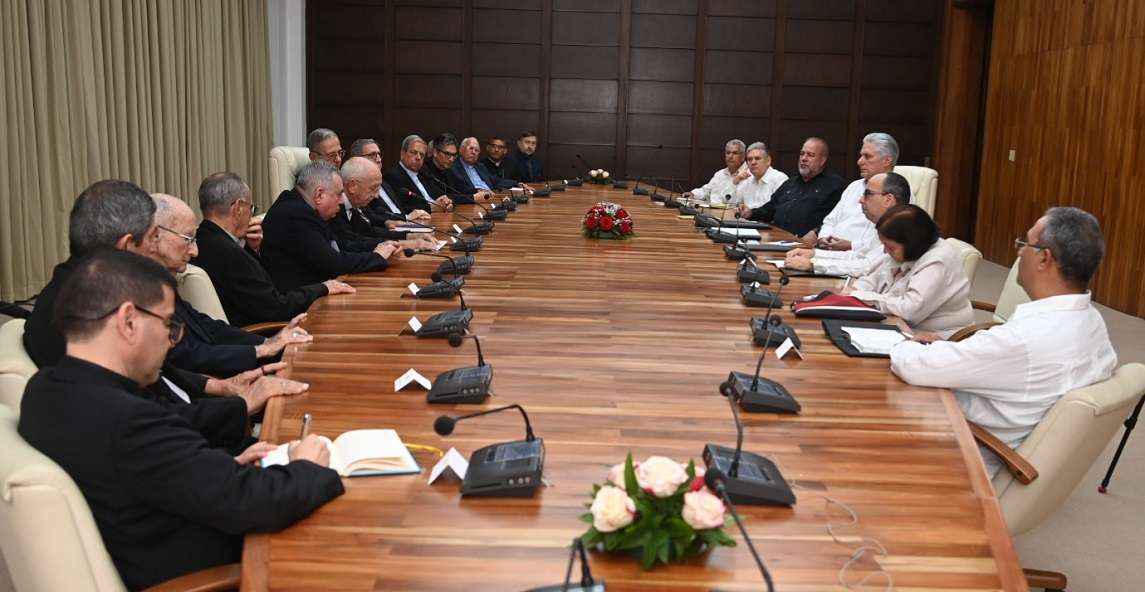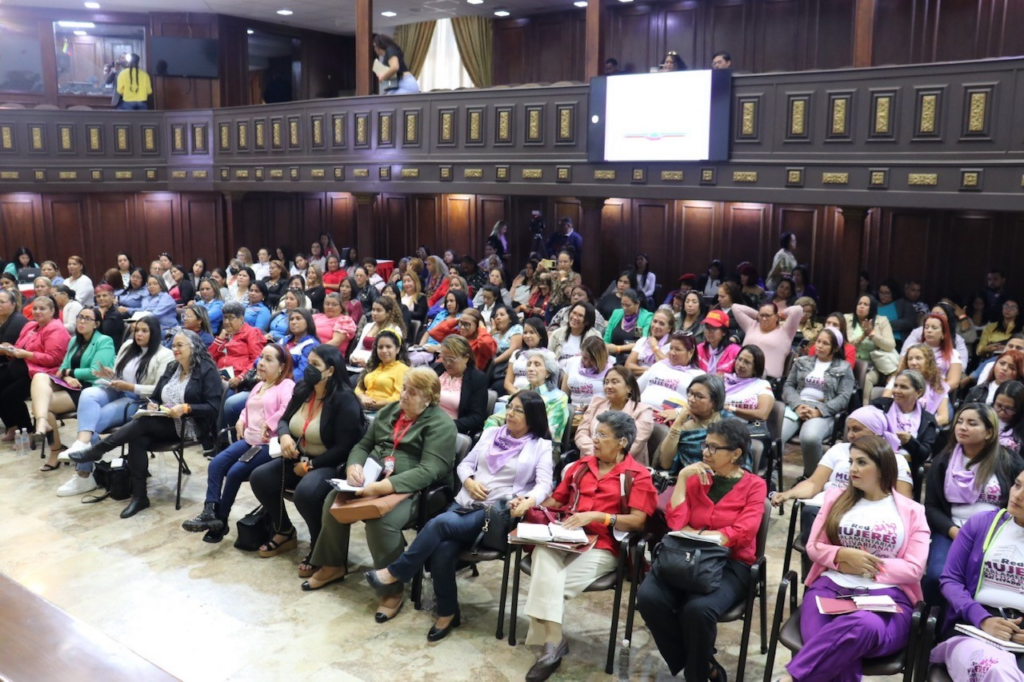The President of Cuba, Miguel Díaz-Canel, met this Wednesday with representatives of the Conference of Catholic Bishops of Cuba (COCC). The meeting took place at the Palace of the Revolution and is “part of his meetings with different sectors,” public the Presidency on Twitter.
Both parties expressed “gratitude for the possibility of the meeting”, in which issues related “to the work of the Catholic Church, the socio-economic situation of the country, the strengthening of values in society, among other matters of common interest” were addressed. ”, also indicates the newspaper Granma.
The First Secretary of the Central Committee of the @PCCParty and President of the Republic, @DiazCanelBreceived this Wednesday, at the Palace of the Revolution, representatives of the Conference of Catholic Bishops of #Cuba, as part of their meetings with different sectors. ?? pic.twitter.com/ZrBEIs11Xp
— Presidency Cuba ?? (@PresidenciaCuba) April 26, 2023
“The meeting took place in a climate of mutual respect, in correspondence with the policy of the Revolution towards religion and believers and full religious freedom enshrined in the Constitution of the Republic of Cuba,” he added.
The Conference of Catholic Bishops of the island has not reported on the meeting in which the Archbishop of Havana, Cardinal Juan de la Caridad García, and the president of the COCC, Monsignor Emilio Aranguren, among other representatives of that institution of the Cuban Catholic Church, participated.
25 years after the visit of John Paul II
These conversations between the Government and the Catholic Church are preceded by the visit made by Cardinal Beniamino Stella at the beginning of the year on a trip framed in the 25th anniversary of the historic apostolic trip to Cuba by John Paul II, the first pope to visit pastoral to the island
That visit was followed in later years by those of his successors, Benedict XVI (2012) and Francisco (2015 and 2016).
Pope Francis’ trips to the island occurred at a historic moment, in the midst of the process of restoring relations with the United States, after more than 50 years of enmity, a diplomatic turn that had the support and mediation of the Vatican and the pontiff. Argentinian.
Cardinal Stella, who traveled to the island as envoy of the Pope Franciscogave a speech at the University of Havana in which he vindicated the role of dialogue, from “kindness and respect”, both within Cuba and in its relations with the United States and considered that “talking can find solutions.”
The Vatican wishes that “those who have power can talk to each other, can listen to each other. Hopefully it happens and it happens soon (this dialogue between Havana and Washington) and it becomes an important step for many advances that the Cuban people greatly need,” added Stella, who was apostolic nuncio to Cuba between 1993 and 1999.
Likewise, after his speech, he declared to the press that the pope “very much wants there to be a positive response” from the Cuban government so that the young people who were sentenced for the anti-government protests on July 11, 2021.
In a meeting at the end of the visit of the papal envoy, the Cuban president assured Cardinal Stella that he would look for ways to “solve the expectations of both parties” and expressed the desire to “continue advancing in the relations of the Cuban State with the Holy Headquarters and also with the Catholic Church in Cuba”.
Catholic Church supports release of those convicted of 9/11, says Pope’s envoy to Cuba
In 1998, the visit of John Paul II and his message for “Cuba to open up to the world and the world to open up to Cuba” marked a milestone in the country’s history and also the beginning of the rapprochement between the Catholic Church and the State. after decades of crises, disagreements and tensions.
Also participating in the meeting on Wednesday were the Prime Minister, Manuel Marrero; the Deputy Prime Minister and Head of Economy and Planning, Alejandro Gil; the head of the ideological department of the Communist Party of Cuba (PCC), Rogelio Polanco, and the head of the Office of Religious Affairs of that political organization, Caridad Diego.
Efe/OnCuba.















